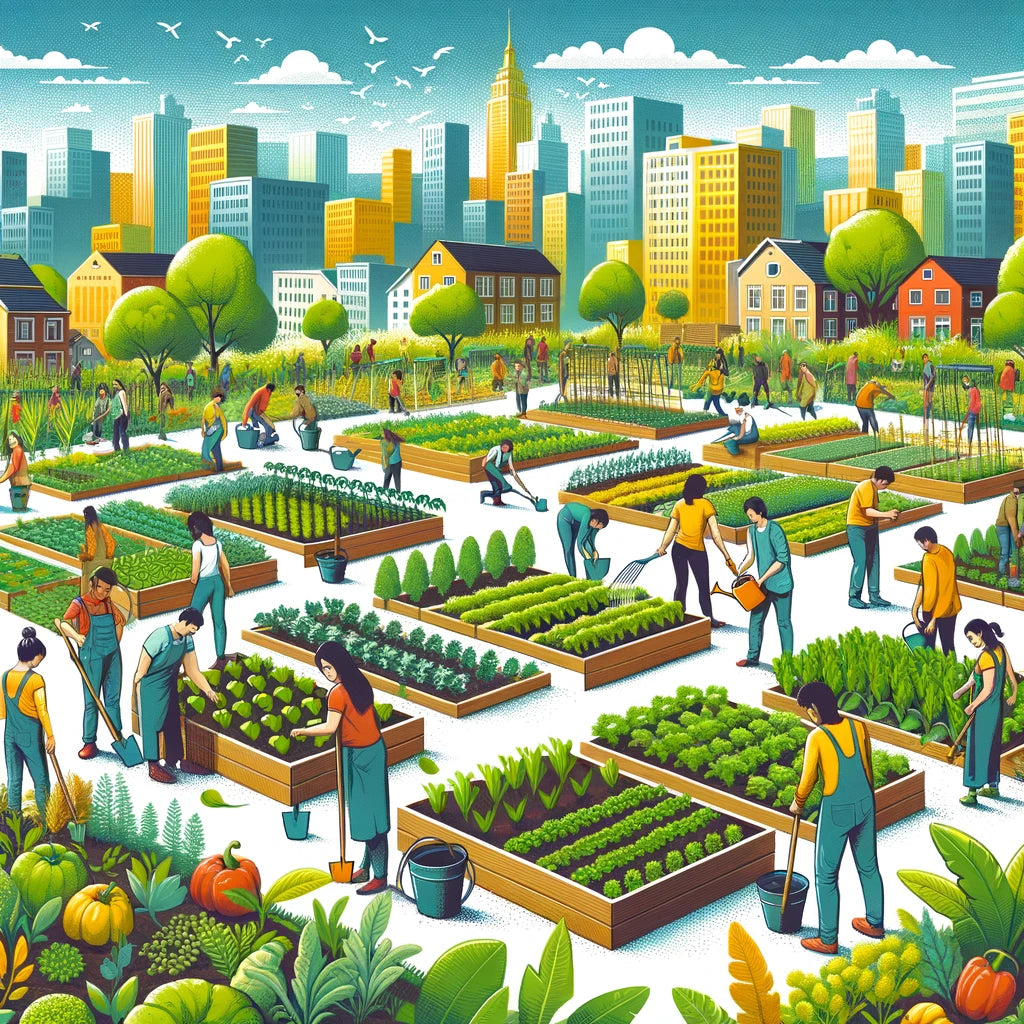
Urban Gardening: Enhancing Plant Awareness in Cities
Share
Urban gardening has gained popularity in cities worldwide as a means to promote sustainable living and reconnect with nature. By bringing plants into urban spaces, this practice goes beyond providing fresh produce—it fosters plant awareness and cultivates a deeper understanding of the natural world. In this article, we will explore the significance of urban gardening in cities and its role in enhancing plant awareness.
Connection with Nature:
Urban gardening offers city dwellers an opportunity to reconnect with nature amid the concrete jungle. Engaging in gardening activities allows individuals to interact directly with plants, observe their growth, and appreciate their beauty. This hands-on experience fosters a greater understanding of the importance of plants in sustaining life and preserving biodiversity.
Environmental Education:
Urban gardens serve as living classrooms, providing valuable opportunities for environmental education. People of all ages can learn about plant life cycles, soil health, and sustainable gardening practices through urban gardening initiatives. This knowledge empowers individuals to make informed choices and contribute to environmental conservation efforts in their communities.
Food Security and Self-Sufficiency:
Urban gardening plays a crucial role in promoting food security and self-sufficiency in cities. By growing their own fruits, vegetables, and herbs, urban gardeners reduce their dependence on commercially produced and transported food. This not only addresses food scarcity concerns but also promotes healthier eating habits and a closer connection to the food we consume.
Green Spaces and Urban Biodiversity:
Urban gardens contribute to the creation of green spaces, which are vital for urban biodiversity and ecosystem health. By introducing plants into urban environments, gardeners provide habitats and food sources for insects, birds, and other wildlife. This supports the presence of diverse species and enhances urban biodiversity. Green spaces and urban gardens also improve air quality, mitigate the heat island effect, and promote climate resilience.
Community Building and Social Cohesion:
Urban gardening fosters community building and social cohesion. Shared gardening spaces, such as community gardens and allotments, bring people from diverse backgrounds together. Participants collaborate, share knowledge, and develop a sense of belonging. Through events, workshops, and educational programs, urban gardening initiatives create opportunities for neighbors to connect and build strong, resilient communities centered around sustainable living.
Conclusion: Urban gardening offers numerous benefits, including enhancing plant awareness, promoting environmental education, improving food security, supporting urban biodiversity, and building community bonds. By cultivating green spaces and engaging in gardening practices, city dwellers contribute to the transformation of cities into sustainable, plant-friendly environments. Urban gardening not only beautifies urban areas but also reconnects people with the natural world, fostering a sense of stewardship and creating a more sustainable future.
